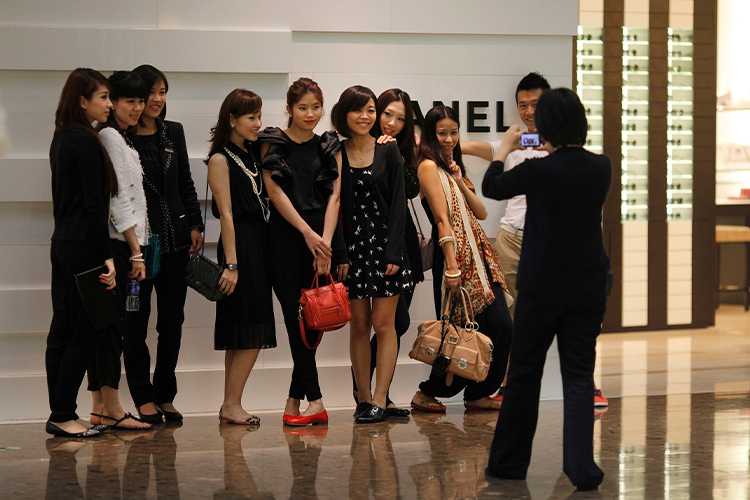Luxury brands are synonymous with quality, exclusivity, and prestige. They are often associated with high-end fashion, jewelry, watches, automobiles, and other luxury products that cater to the elite segment of society. However, running a luxury brand successfully requires more than just offering expensive products. It involves a well-thought-out strategy that aims to create a unique and exceptional brand experience for the customers. In this article, we will uncover the strategy behind running a luxury brand successfully.
Exceptional Product Quality: The foundation of a luxury brand is its product quality. Luxury brands are known for using the finest materials and craftsmanship to create products that are exceptional in terms of design, durability, and performance. Customers expect nothing but the best from luxury brands, and any compromise in quality can lead to a decline in the brand’s reputation. Therefore, luxury brands must invest heavily in research and development, sourcing the best materials, and maintaining strict quality control measures to ensure that their products are of the highest standard.

Exclusivity and Limited Availability: Luxury brands often limit the availability of their products to create a sense of exclusivity and scarcity. This strategy is used to enhance the desirability of the brand and its products among the elite segment of customers. Luxury brands typically offer limited edition products, exclusive collaborations, or bespoke services to cater to the individual preferences of their high-end customers.
Creating a Unique Brand Experience: Luxury brands are not just selling products; they are selling a lifestyle and an experience. To create a unique brand experience, luxury brands focus on creating an immersive brand environment that connects with the customers’ senses and emotions. This involves designing elegant and sophisticated stores, using high-quality packaging, creating an attractive brand story, and providing exceptional customer service.
Investing in Brand Marketing: Luxury brands invest heavily in brand marketing to build brand awareness, reputation, and loyalty. Luxury brands typically use high-end fashion shows, exclusive events, and celebrity endorsements to promote their brand. They also leverage digital marketing channels such as social media and influencer marketing to connect with their target audience and create a strong online presence.

Maintaining Price Premium: Luxury brands are known for their high prices, which are often several times higher than their mainstream counterparts. Luxury brands maintain their price premium by offering exceptional product quality, exclusivity, and a unique brand experience. They also limit the availability of their products, which creates a sense of scarcity and exclusivity, which further justifies their premium pricing.
Innovation and Creativity: Luxury brands need to constantly innovate and create new products, services, and experiences to remain relevant and differentiate themselves from their competitors. This involves investing in research and development to explore new materials, technologies, and design concepts. Luxury brands must also have a deep understanding of their customers’ preferences and adapt to the changing trends in the market to stay ahead of the curve.
Heritage and Legacy: Many luxury brands have a rich heritage and legacy that spans several decades or even centuries. These brands have a story to tell, and they use their history and tradition to create a sense of authenticity, credibility, and trust among their customers. Luxury brands often highlight their heritage and legacy through their branding, marketing, and product design, which reinforces their position as a timeless and iconic brand.
Social Responsibility and Sustainability: In recent years, luxury brands have started to focus on social responsibility and sustainability as part of their brand strategy. Customers are increasingly conscious of the impact of their purchasing decisions on the environment and society, and luxury brands need to respond to this trend. Many luxury brands are adopting sustainable practices in their manufacturing processes, sourcing materials from ethical suppliers, and investing in social and environmental initiatives to support the communities they operate in.
Personalization and Customization: Luxury brands often offer personalized and customized products and services to cater to the individual preferences of their high-end customers. This involves providing bespoke services, such as made-to-measure suits, custom jewelry, or personalized fragrances. Luxury brands also use data analytics and artificial intelligence to personalize the customer experience, such as offering personalized recommendations based on the customer’s purchase history or preferences.
Building a Strong Team: Luxury brands need a talented and passionate team to execute their brand strategy and deliver exceptional customer service. Luxury brands often hire employees who share the brand’s values and vision and have a deep understanding of the brand’s products and services. Luxury brands also invest in employee training and development to enhance their skills and knowledge and provide a consistent brand experience across all touchpoints.
Customer Relationship Management: Luxury brands must focus on building long-term relationships with their customers. This involves providing exceptional customer service, understanding the customers’ needs and preferences, and offering personalized experiences. Luxury brands often have dedicated customer service teams that provide 24/7 support and assistance to their high-end customers.

Partnerships and Collaborations: Luxury brands often collaborate with other luxury brands or designers to create exclusive collections or limited edition products. These partnerships help to expand the brand’s reach, create buzz and excitement, and appeal to new customer segments. Luxury brands must carefully select their partners and ensure that the collaborations align with their brand values and image.
Global Expansion: Luxury brands often expand their operations to new markets to tap into the growing demand for luxury products in emerging economies. However, global expansion comes with its challenges, such as cultural differences, regulatory requirements, and logistics. Luxury brands must carefully plan their expansion strategy and adapt to the local market conditions to ensure their success.
Crisis Management: Luxury brands are not immune to crises, such as product recalls, scandals, or reputational damage. Luxury brands must have a crisis management plan in place to address any issues promptly and effectively. This involves being transparent, taking responsibility, and communicating with the customers and stakeholders to restore their trust in the brand.
Continuous Improvement: Luxury brands must continuously evaluate their brand strategy and performance and make necessary adjustments to stay relevant and competitive. This involves monitoring the market trends, listening to the customers’ feedback, and investing in research and development. Luxury brands must also embrace innovation and new technologies to stay ahead of the curve.
In conclusion, running a luxury brand successfully requires a multifaceted strategy that goes beyond offering expensive products. Luxury brands need to focus on exceptional product quality, exclusivity, creating a unique brand experience, investing in brand marketing, maintaining price premium, innovation and creativity, heritage and legacy, social responsibility and sustainability, personalization and customization, and building a strong team. By following these strategies, luxury brands can build a strong brand identity and reputation, create a loyal customer base, and continue to thrive in a competitive market.







